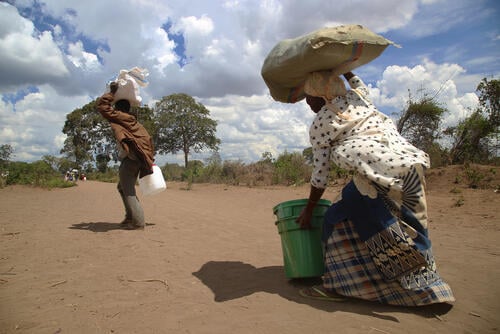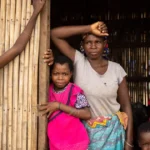Mozambique’s northern Cabo Delgado province is once again facing a major humanitarian crisis, as nearly 60,000 people have fled their homes in just two weeks due to a renewed wave of attacks by fighters linked to the Islamic State (ISIL/ISIS). The International Organization for Migration (IOM) confirmed that, as of early August 2025, over 57,000 individuals representing more than 13,000 families have been displaced since violence escalated on July 20.
The district of Chiúre has been the worst affected, with more than 42,000 people forced to flee, over half of them children, highlighting the disproportionate impact of the conflict on vulnerable populations. The United Nations Office for the Coordination of Humanitarian Affairs (OCHA) reported that approximately 30,000 displaced people have so far received emergency food, water, shelter, and essential supplies. However, the humanitarian response remains far below what is needed to meet the growing needs.
“The response is not yet at the scale required,” said Paola Emerson, head of OCHA Mozambique, who also warned that significant cuts in international aid—including reductions by the United States and other key donors—are severely hampering relief operations. The UN’s 2025 Humanitarian Response Plan for Mozambique is critically underfunded, having received only 19 percent of the requested contributions.
The resurgence of violence stems from an eight-year-long insurgency by an armed group known locally as al-Shabab, which is not affiliated with the Somali militant group of the same name. The conflict has devastated communities across Cabo Delgado, a resource-rich yet impoverished province with vast offshore natural gas reserves. Since the beginning of the rebellion in 2017, more than 6,100 people have been killed, including at least 364 in 2024 alone, according to data from the Armed Conflict Location & Event Data Project (ACLED) and the Africa Centre for Strategic Studies.
Rwandan forces deployed to Mozambique in 2021 helped temporarily push back the insurgents, allowing some stability to return. However, the latest wave of attacks has exposed the fragility of those gains. The renewed insecurity has again threatened major economic projects in the region, most notably the $20 billion liquefied natural gas (LNG) venture by French energy giant TotalEnergies. The company was forced to halt operations in 2021 due to the violence but has expressed hopes to restart the project this summer.
Beyond the immediate displacement crisis, humanitarian agencies are also warning of serious protection risks, including the lack of access to documentation, involuntary relocations, and the possibility of further violence. Children and women, in particular, are at heightened risk of exploitation and abuse.
As the conflict in Cabo Delgado stretches into its eighth year, the urgent need for international attention and funding is growing. Without significant and immediate support, thousands of displaced Mozambicans face an uncertain and dangerous future.













Leave a comment